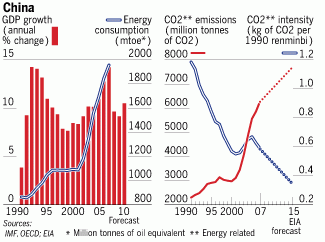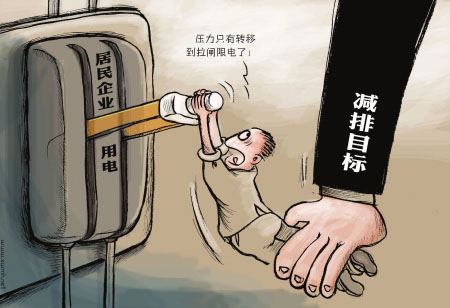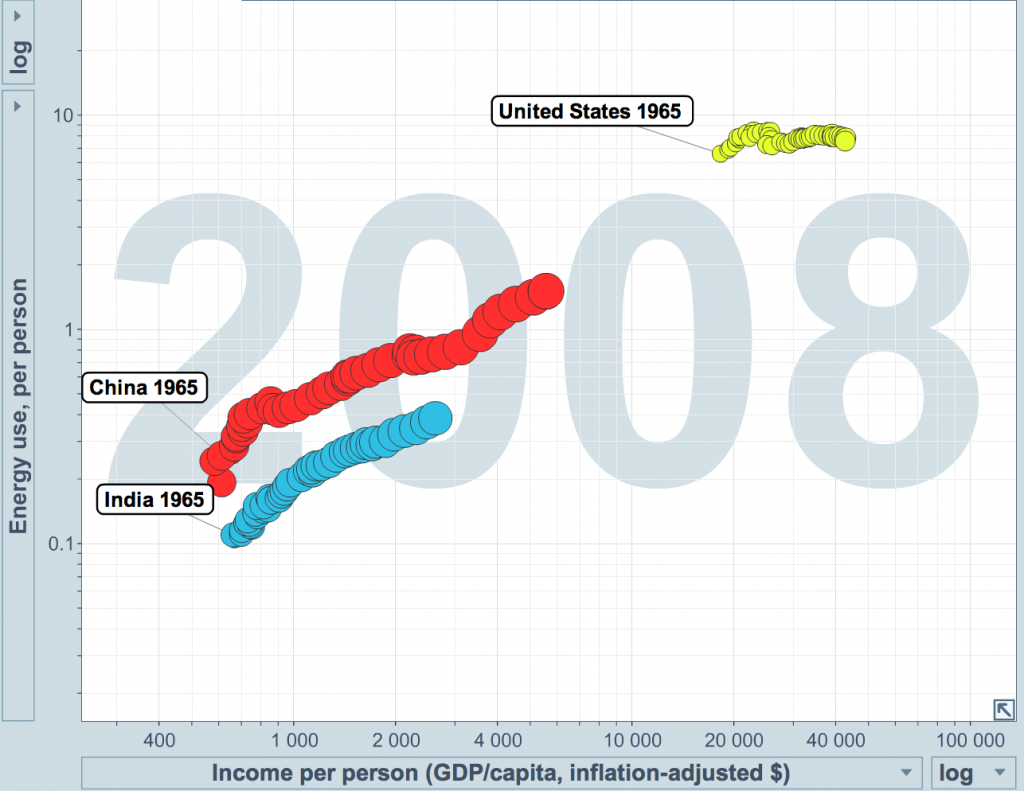Long lines are forming at gas stations in China. Truck drivers now wait in line for hours to fill up on diesel fuel. What’s going on? The answer is not what you might think.
No, it’s not peak oil (at least not yet). And unlike the oil embargo of the seventies, where the middle east slowed down the flow of oil to industrial nations, China is able to purchase most the oil it needs (for now). No, in this case, the fuel shortages are self-inflicted.
 China is, by some measures, the largest consumer of energy in the world and they are trying to reduce their consumption.
China is, by some measures, the largest consumer of energy in the world and they are trying to reduce their consumption.
It takes a lot of energy to grow a modernizing society. To meet energy demand, China has been building power plants every week or two, many of them greenhouse gas emitting coal-fired plants. The damage to their environment, public health, and contribution to global pollution, CO2 emissions, and climate change are enormous. Reducing energy consumption will help slow and eventually lessen toxic impact.
Chinese leaders want to reduce their energy intensity, or the energy use per unit of GDP. Their goal is to reduce energy intensity by 20 percent from where it was five years ago.
To achieve this goal, China has implemented Draconian measures, including:
- planned power outages
- shutting down more than 2,000 outdated factories in heavy industry
- turning off traffic lights in some areas

Small and medium business, unable to get special exceptions from party officials, are hardest hit by the power cutbacks. In frustrated response, entrepreneurial business owners are adapting by buying generators to make their own power. An unintended consequence: Generator prices are soaring, and factory owners have been stocking up on diesel fuel to power the generators, increasing demand for diesel fuel.
To make matters worse, according to the Financial Time
Wholesalers, betting on future price hikes, started storing diesel instead of selling it. Meanwhile diesel’s wholesale price, which is less tightly controlled by the state, started to soar and soon exceeded the retail price—so many gas stations could only sell diesel at a loss. There is also a basic shortage of supply: China’s diesel imports have soared and the country has announced a ban on diesel exports next year, according to reports.
China is walking a fine line between trying to restrain growth, and giving freedom the their citizens, who long for western super-consumer lifestyles. As China per capita income has soared, so has per capita energy consumption. The chart below shows income and energy use from 1968 through 2008, for the US, China, and India.

While the gas lines are largely due to China’s brute force energy policy aimed at efficiency, as the world recovers from the global recession, heavy energy users like the US, China and India will likely return to their pre-recession energy consumption levels, and we should expect to see higher fuel prices.
And as we enter firmly into the peak oil phase of oil production, shifting to renewable forms of energy will be more important than ever.
Recommended Reading
The Real Population Problem by Jay Kimball
China: The Next Superconsumer? by Jay Kimball
Beijing Power Consumption Hits Historic Peak During Extreme Heat Wave by Jay Kimball
German Military Study Warns of Potential Energy Crisis by Jay Kimball
usws says:
Good intentions, not so good measures taken?